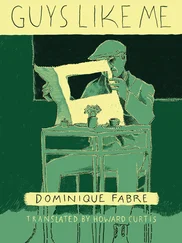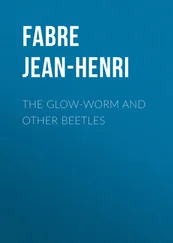Dominique Fabre
The Waitress Was New
Oh yes! I hated Sundays,
Because that’s the day when I think
And count the days past and to come.
Pierre Morhange
The waitress was new here. She came out of the underpass and hurried down the sidewalk, very businesslike, keeping to herself, as tall as me even in flat-heeled shoes. Maybe forty years old? That’s not the kind of thing you can ask a lady. She had a sort of flesh-pink makeup on her eyelids, she must have spent a long time getting ready. I didn’t look too closely at her shoes, the way I usually do to size someone up, because I had a feeling she’d seen some rough times, and there was no point overdoing it. And I’ve seen some rough times too, I tell myself now and then, but I’m not even sure it’s true. The sky was all cloudy. Sometimes, on gray days like this, you can see why you’re here, in a café like Le Cercle. People come in to get out of the weather, they have a drink, and then they go on their way. The boss was smoking his morning cigarillo when she showed up. He and I got along nicely, I think you could put it like that. I’m already about to retire, whereas he’s in his prime, theoretically, but he has problems with his cholesterol, and other health worries besides. He keeps his pills in a corner of the bar next to the Casio. I used to have to take the same kind myself, and I’m still here, but I think that sort of got to him, he seemed a little on edge. Sabrina hadn’t been in for three days now, she’d sent a note from the doctor, she had a bad flu. The new girl must have been wondering if this was the place, I wasn’t sure if she was going to come in or keep walking. The boss was dreading another lunch shift alone with his wife and me, and without Sabrina, and of course it’s not easy finding someone who knows the job to fill in just like that.
The boss threw her a quick glance, she took her little piece of paper from her purse and came in, slower now, yes, it was her. He didn’t budge, he just put down his smelly cigarillo in the green and white Suze ashtray. We don’t get much call for that kind of apéritif anymore, but we still have the ashtrays with the name on them. We also have Dubonnet glasses here at Le Cercle, and other kinds with the brand names of bottles that never come down from the shelves, maybe they still mean something to the customers, what I don’t know. She looked a little nervous, and I gave her a big smile to encourage her when she came up to introduce herself. A lot of the time the boss has a sour look on his face, kind of like a bulldog, but he’s not such a bad guy, really. Sometimes he’ll sulk for two or three days, even a month or two, and then as quick as it came over him it’s gone, and that’s the end of it. That week he was scowling more or less full-time, and had been for almost a year, but what can you do, that’s the boss. She said something to him in a quiet voice, I couldn’t hear because there was a garbage truck being loaded outside. I could see two little green men with big gloves on their hands, along with a mattress done in by the rain yesterday and the day before. I’d already looked at that mattress a couple of times, I’d even made a quick detour to walk past it on my way in, it spoiled my view. I wondered if somebody was moving out, or maybe there’d been a death, unless someone had just left it there because they’d got a new bed. There’s a big furniture store not far from here, on the pedestrian street. It was a king-size, with the usual stains, all on the same side, and little feathers that hadn’t felt a raindrop for a good ten years. I’ve slept alone for too long. I’ve never even had a chance to try Viagra, which apparently works wonders, and ends lots of marriages, from what I hear in the café. I’d like to, from time to time. Hundreds of bottles went tumbling into the truck when the dumpster lid opened, and it made one hell of a racket, if you’ll pardon the expression. But of course everybody has to throw out a mattress sooner or later, and if you’re still alive your nights will never be quite the same. The trashmen shoved it in on top of the bottles and drove away. That would have made a good commercial for Alcoholics Anonymous, I thought to myself, but that’s not my line of work. The trashmen go to the other bar, across the street, La Rotonde. I have no idea why it’s called that.
The boss shook her hand and introduced me. “This is Pierre,” he said, and she gave me a nod, her eyes were sort of small but bright, maybe because of the cold outside, it was nine-thirty in the morning. I put out my hand and said “Hello, how’s it going?” What I really wanted to say was “Welcome to the club,” and then give her some tips on the questions she was probably going to ask. The boss isn’t much of a talker, but he’s him and I’m me. I’m only the oldest employee of Le Cercle, which is the café where I work, across from the Asnières train station, where there’s nothing to see but people coming in and going out, trains every seven minutes to and from Saint-Lazare in Paris, and also some double-decker Transiliens to Argenteuil, Versailles-Rive Droite, Versailles-Chantier, Évreux, Dreux, and lots more places in the outer suburbs. She had a firm grip, when she let go I noticed she had a big wedding ring on her left hand, and I wondered if that’s really where it’s supposed to go. That was all too long ago for me, maybe I’d forgotten. Still, I’d stayed married for eight years, I was a young man then. I kept my ring on at first. Then I put it in my nightstand drawer. I lost a lot of illusions, but not her. My ex remarried, lived happily, and had two children. Then unhappily, and still two children. Then we lost touch. Her name was Marie, like my adoptive mother. The boss looked around, he’d picked up his cigarillo again.
“Well, let me show you the kitchen,” he said to Madeleine.
With a jerk of his chin he pointed me toward a customer who comes to see us three times a day, I won’t mention his name out of Christian decency, he’s overdue on his tab. The boss had already asked him more than once when he’d be paying, but last night at midnight, apparently — I’d gone home a good while before — the guy had suddenly burst into tears. He’d undone his necktie, laid his suit jacket beside him on the bar next to his final drink, and the boss had had a terrible time getting him to stop his little strip-tease. He was undressing to go throw himself into the river “in the altogether,” as he put it, the Seine’s just two hundred meters away. Not even that. I went over to him, I held out my hand, and he gave it a gentle little shake. “Hello, Pierre, how are you?” It’s always the same, once or twice a week he goes on a bender at Le Cercle, then the next day he’s all sweetness and light. Sometimes I had to see him home. He lives on La Lauzière, which is a little uphill street not far from the train tracks, where you’ll find a few millionaires’ villas, his among them.
“So, feeling fine?” I asked.
He seemed a little out of it, which gave me a chance to look toward the station. The mattress was gone. “Yeah, I’m doing OK. Thanks.” He’s a developer, he’s in on all the crooked deals that go down around here, I’ve even been told he knows the people on the District Council, all those suit-wearing lowlifes from Neuilly, Levallois, Clichy, and Paris-La Défense, but then people tell me a lot of things. I listen, but I don’t really hear. I put some coffee in the Lavazzo machine, because I knew he’d be wanting a cup at this time of day, and then I came and bent down beside him.
“You’re going to have to pay us, you know,” I said, with my hand in front of my mouth so no one could hear.
Читать дальше












